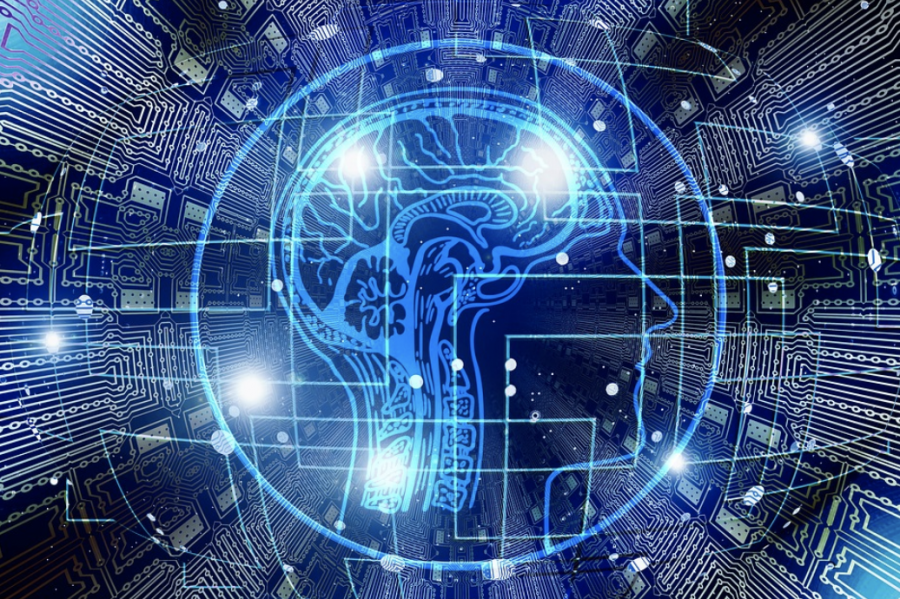Blame It on Your Brain: The Science behind Procrastination
November 2, 2021
Most of us are familiar with the vice of procrastination: the guilt of continually delaying an assignment, the dreaded phrase of “I’ll do it tomorrow,” and the horror of rushing a task and regretfully clicking the submit button at 11:59 pm. This behavior is outright detrimental not only towards our health but also towards our grades. Although most procrastinators know that what they are doing is harmful, they don’t change their habits. Why do so many students continue to put themselves into these stressful situations? Despite how easy it sounds to “just do it,” fixing procrastination isn’t as simple as it seems: procrastination habits actually stem from the brain.
Procrastination is the act of delaying tasks until the last minute. People have a natural tendency to procrastinate. Joseph Ferrari, a professor of psychology at Depaul University, claims that approximately 20% of adults in the US are chronic procrastinators. Proponents of procrastination claim that they “work best under pressure” or say that procrastination doesn’t matter “as long as the work gets done.” However, this mindset is objectively wrong—procrastination is extremely detrimental and does not offer any long term benefits. Some researchers identify procrastination as a failure to self-regulate, in which the irrational delay of tasks leads to negative consequences.
The harmful nature of procrastination has been documented since 1997. In a study conducted at Case Western Reserve University, researchers found that procrastinators initially had lower levels of stress near the beginning of the semester. However, as the semester neared its end, procrastinators not only finished their work later, but also had lower grades and higher overall amounts of stress. The short term benefits of procrastination hardly outweigh the consequences of lower quality work and higher anxiety; thus, it is important to break this habit. If you can’t seem to fix your habit of procrastination, don’t be ashamed. According to many psychologists, fixing this behavior is not as easy as it sounds. In fact, Ferrari claims that telling a procrastinator to “just do it” is comparable to telling a clinically depressed person to “cheer up.” Procrastination is an issue that extends beyond just a lack of time management—it is a result of unconscious processes occurring in our brain.
If you have seen the Ted Talk “Inside the mind of a Master Procrastinator” from Tim Urban, you know about the infamous instant gratification monkey who prevents the rational decision-maker from controlling the brain. As unscientific as that may sound, this situation is remarkably similar to what actually happens in the brain. Although there isn’t a monkey in our brain that makes us procrastinate, recent research demonstrates that similar processes do happen between the limbic system and prefrontal cortex of the brain. The limbic system is one of the oldest parts of the brain and is involved in unconscious, automatic processes. For instance, have you ever touched a hot surface and pulled your hand away immediately? That was because your limbic system told you to pull your hand away. However, the limbic system includes the pleasure center and is also the system that tells us to flee from unpleasant tasks. The limbic system is essentially the instant gratification monkey: it tells us to abandon hard tasks and instead do things that we enjoy. This is called “immediate mood repair” according to Timothy A. Pychyl, a psychology professor at Carleton University. Whenever we push back that math assignment or English essay to watch YouTube or play video games, the limbic system is at work.
If the limbic system is the instant gratification monkey, what is the rational decision maker? That is the role of the prefrontal cortex, or PFC: this portion of the brain allows you to integrate information, make decisions, and actually get work done. The problem is that compared to the automatic limbic system, the PFC is manual—we have to kickstart this system into action. If we are not consciously engaged in a task, the PFC can’t do its job, and our limbic system will take over. The moment our rational decision-maker takes its hands off the wheel, the instant gratification monkey swoops in. Therefore, even if we are aware of impending deadlines, it takes a lot of effort to actually start the prefrontal cortex, while the limbic system is automatic. Since humans inherently want to use as little energy as possible, the limbic system is naturally dominant over the prefrontal cortex, leading to a tendency to procrastinate.
Procrastination is a difficult habit to break because our brains are quite literally wired to procrastinate. However, one method that may be very effective is the practice of mindfulness. Mindfulness isn’t just meditation: it is the act of recognizing your emotions and surroundings and being in the present moment. The goal isn’t to meditate and try to suppress procrastination; rather, the goal is to simply notice. If you find yourself procrastinating, practice mindfulness by noting what emotions you feel, whether it may be guilt or anxiety. Next time, after you finish your work, try to notice what emotions you feel afterwards, such as a sense of accomplishment or relief. By associating procrastination with negative behaviors and completion of tasks with positive emotions, we will be less inclined to procrastinate.
Another solution is to give yourself rewards for doing your work. For example, promise yourself that if you work for one hour, you can take a break afterwards and play a video game or look at your phone. By giving yourself these rewards, you satisfy the limbic system and allow your PFC to actually get the work done.
Additionally, it is very important to get into the habit of breaking down large, difficult tasks into a series of smaller, more manageable tasks. Oftentimes, we procrastinate because we don’t know how to start. However, if we focus on doing chunks of a task instead of the entire thing, it is easier for our PFC to take action to get a task done.
There isn’t a simple solution for procrastination. After all, it is a multi-faceted behavior that requires discipline, motivation, and hard work to resolve. Some solutions might not work for everyone, so the key thing is to figure out what works best for you. At the very least, you now know what goes on in your brain when you procrastinate, so if your parents ever lecture you about procrastination, just blame it on your brain.






